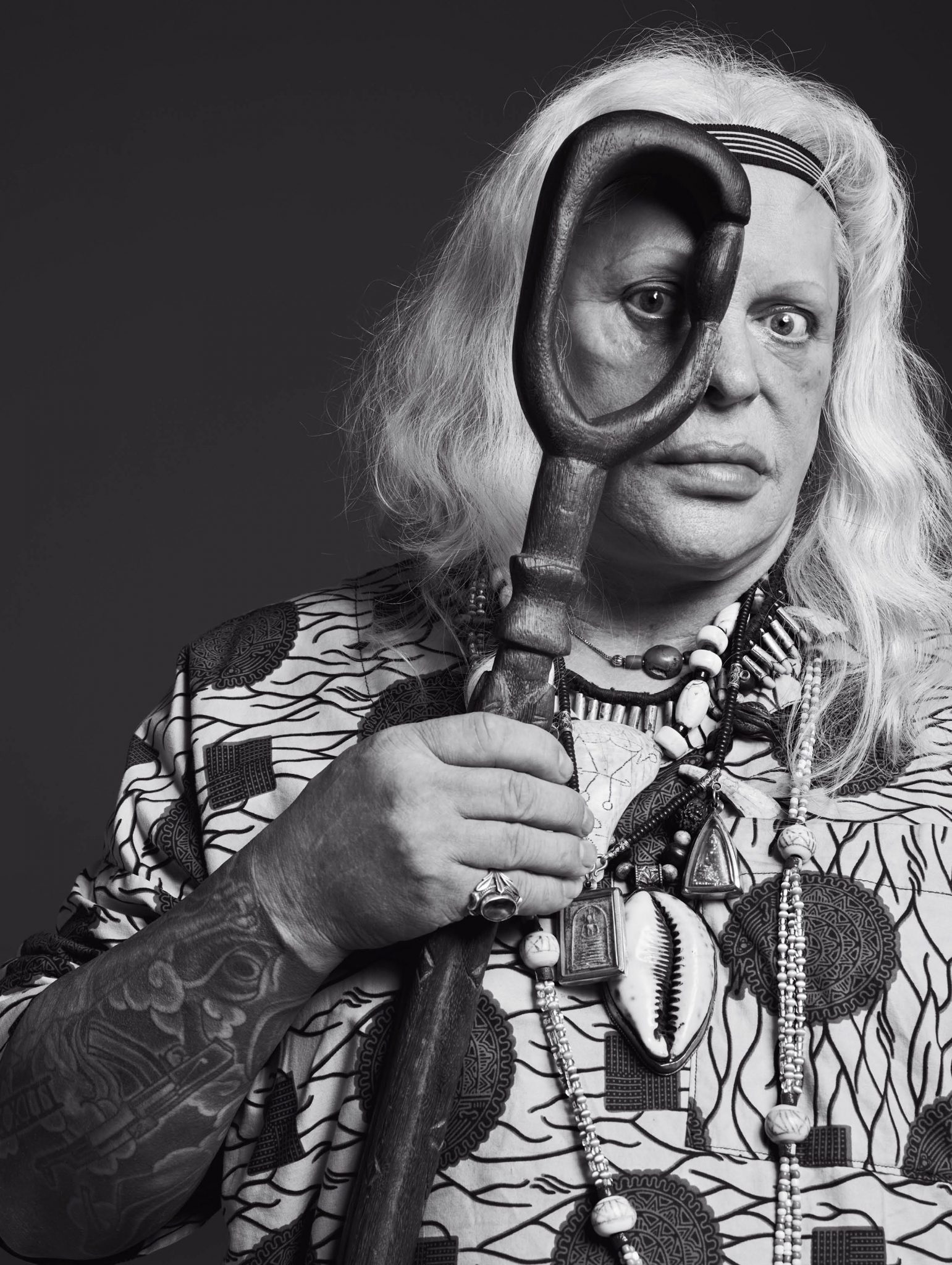Heroes: Genesis P-Orridge Transcends Again
For V120’s Heroes series, V analyzes the mind and impact of Neil Megson, aka Genesis P-Orridge, who was nominated by Hedi Slimane.
This fall, Mute Records will reboot five albums from the catalog of Throbbing Gristle, the post-punk, ideology-slinging group cofounded by Genesis P-Orridge in 1975. Planned amid P-Orridge’s declining health and lingering tensions within the band, the slated re-releases promise to blur the lines between creation and annihilation, past and present—as P-Orridge has done ceaselessly for decades.
Born Neil Megson in 1950 in Manchester, P-Orridge arrived in London as punk was in full swing. But P-Orrdige (who uses “s/he” and “h/er” pronouns) and like-minded transgressors would start their own experimental factions; besides founding Throbbing Gristle and coining the term “industrial music,” s/he would establish Thee Temple ov Psychick Youth, an “anti-cult” aiming to transcend normativity in all its forms.
These movements would mutate over decades, inspiring generations of punk offspring. Singer Ellery Roberts of Lost Under Heaven and WU LYF recalls his initiation to P-Orridge’s work as paradigm-shifting. “Once I got a copy of the Psychick Bible, [I came] to appreciate that perspective— of feel[ing] marginalized or alienated from culture,” he says. “What I was trying to create with WU LYF, [or] the ‘Lucifer Youth Foundation,’ was sort of a PG-13 version of TOPY.”
Since he launched Heaven with partner Ebony Hoorn, the specter of Genesis P-Orridge still looms large: “We will often realize something we’re doing is a bastardized rehash of an idea that Genesis had 20 years ago,” Roberts laughs.
While P-Orridge’s longtime, now-estranged creative partner Cosey Fanni Tutti has recently recalled a toxic work dynamic within Gristle, P-Orridge took on a wise-parent role later on. “Our last show before having our son was with Gen[esis],” says Wes Eisold of synth-pop band Cold Cave.
“S/he gave us advice that no one else had: to just do what you’re doing and take your child with you everywhere.” In V72, P-Orridge discussed h/er no-holds-barred approach to life and art: “The objective was to become so intertwined that we could locate each other after death,” said P-Orridge of late wife Lady Jaye. “It’s not about transformation but resolution—getting to where we are supposed to be.”
For Roberts, the radicalism of such a philosophy lies not in anarchy but in optimism: “[That] consciousness stops with the body—that kind of scientific, rational materialism in which I was brought up—rings a little hollow to me,” says Roberts. “I’m inspired by those who speak [on existence] in creative terms. And maybe one day [Genesis’s] perspective will be the consensus on the subject. We’ll see.”
